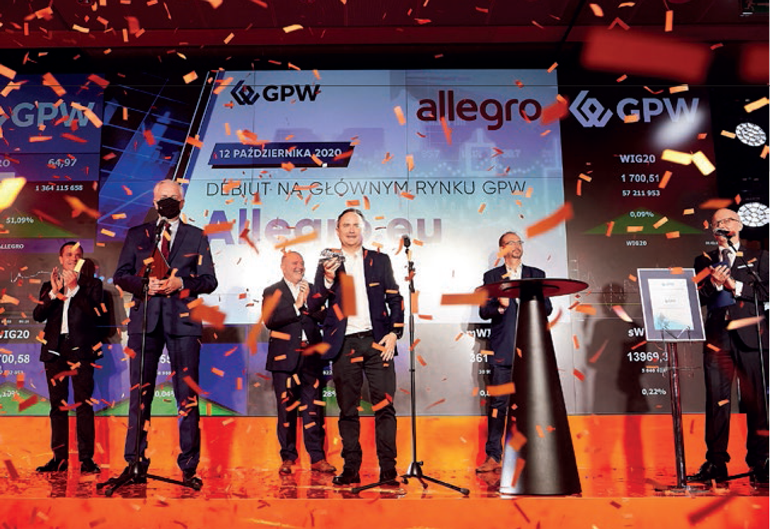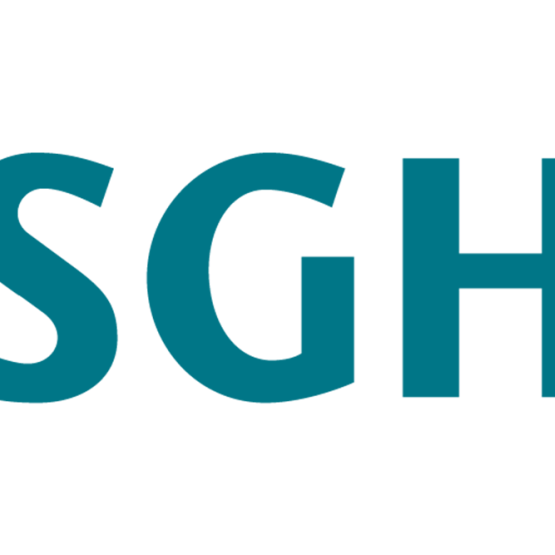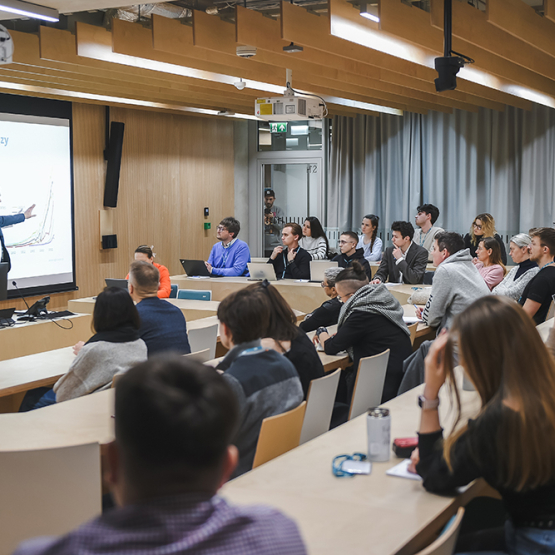
The rapid, unexpected changes which make it difficult for people to find patterns of behaviour, coupled with the multiplicity of areas of activity, the impact of many external factors and the lack of previous experience in such complex circumstances – all this has translated into the emergence of what is known as “the new normal” of the VUCA world. This in turn creates favourable conditions for the emergence of “black swans.” The experience of the past year has clearly demonstrated that VUCA is a term that can be applied beyond military nomenclature. This acronym, which describes our circumstances as characterised by Volatility, Uncertainty, Complexity and Ambiguity, perfectly describes the challenges we have faced throughout year.
The „black swan” of the economy
Economist and philosopher Nassim Nicholas Taleb defined this phenomenon as unexpected and unlikely, yet having a huge impact–positive or negative–on reality. Many scholars consider the coronavirus pandemic, which shook the global economy and forced us into social isolation on an unprecedented scale, to be such a „black swan”. Are we able to identify its long-term impact? Until the situation is fully under control and the COVID-19 vaccine is widely available, this seems doubtful. However, we can assess the impact of the pandemic on the Polish economy and stock market.
Digital technologies to the rescue
GDP fell sharply in Q2 of 2020 and rebounded strongly in Q3, shaping the coronavirus recession into a „V curve”. One of the factors that determined the relatively high resilience to the shock was the ability of Polish entrepreneurs and government administration to make a swift transition to digital solutions. Crucial to companies’ survival on the market was the implementation of new technologies that enabled remote access to systems, automation and robotisation of manufacturing processes. Many entrepreneurs understood that the use of solutions such as IoT, AI and Big Data was cost-effective and enhanced the flexibility of business operations.
However, this was far from obvious: in the World Economic Forum’s 2019 competitiveness ranking, Poland came 51st in terms of ICT Adoption. The government performance was rated much better: the most recent E-Government Development Index (UN) has the Polish administration on the 24th position. It is therefore gratifying to see that the use of technological tools by the government and businesses was much better than indicated by the level of technology in Poland.
How is the Warsaw Stock Exchange doing under these difficult circumstances?
On the one hand, we see record-breaking financial performance, fuelled by increased investor activity on the WSE markets but, on the other hand, many listed companies are struggling under the challenging economic conditions. Two groups are clearly visible here, namely COVID-winners and COVID-loosers. The Warsaw Stock Exchange certainly belongs to the former group.
Stock market records
In the third quarter of 2020, the WSE Group’s revenues from the financial market were a quarter higher than a year earlier, and it was the second stock exchange in Europe in terms of growth of liquidity measured by the value of stock trading based on the order book. This is partly due to the active individual investors, whose share in the Main Market trading nearly doubled year-on-year, hitting 22% in H1.
In November, the total value of trading in shares on the WSE Main Market doubled year-on-year, reaching PLN 31.3 billion. Moreover, the WSE is now No. 1 in the world by the number of listed gaming companies, ahead of the previous leader, i.e. the Tokyo Stock Exchange.
The pandemic also indirectly led to many records on the NewConnect market, rising its daily trading volume to historic semi-annual, monthly and daily highs in 2020. Between the beginning of the year and end of November, the NewConnect trading volume totalled PLN 13.8 billion, almost equalling its own volume for the entire decade of 2010–2019 (PLN 14.1 billion). In November alone, the trading volume grew by 926% year-on-year, hitting PLN 1.5 billion. Furthermore, the WSE carried out the first virtual IPO in its history: SimFabric was “virtually floated” on NewConnect in April 2020.
However, it was the IPO of Allegro in October that energised the WSE floor in 2020. The value of its IPO amounted to PLN 9.182 billion, which turned out to be the biggest market debut in the history of the Warsaw Stock Exchange. According to IPO Watch, Allegro was also the second largest IPO in Europe in Q3 of 2020 and one of the 10 biggest IPOs worldwide in the same year. On the IPO day, Allegro’s share price leapt by 51% at the opening alone and by 62.8% during the day, and its market capitalisation based on the offering price was PLN 44 billion. Worth mentioning is that more than 36,000 individual investors subscribed for the company’s shares under the IPO.
We hope that the spectacular success of this new entrant will encourage other companies, especially “unicorns” (technological start-ups valued at a minimum of USD 1 billion) in our region to seek a listing on the Warsaw Stock Exchange.
Implementation of the #GPW2022 strategy
Two years ago, in SGH Insight, I presented strategic initiatives which were supposed to support the growth dynamics of the WSE Group and become a driver of innovation in the Polish economy. We have not abandoned any of them and are systematically implementing successive stages of our projects.
In March 2020, we launched the Agricultural and Food Commodities Market (RTRS), which was one of the key strategic initiatives of the WSE Group and a breakthrough project for the Polish agriculture. We are also implementing a project entitled “Implementation of the ESG Strategy,” which will help, among others, to develop unified guidelines for the reporting of ESG factors by listed companies. We have also launched a comprehensive educational programme called “WSE Growth.” The main objective of the programme is to support companies in building their value through expansion, using external sources of financing with a strong focus on growth via the capital market.
We are still developing new companies in our capital group: GPW Ventures, which will invest in venture capital funds operating at the pre-IPO stage, and GPW Tech, which successfully creates IT products for the financial sector. November saw the launch of GPW Tech’s GRC tool (Governance, Risk & Compliance), which has such functionalities as the management of non-compliance risk. We are also developing the GPW Data project, based on machine learning and artificial intelligence methods, and will allow capital market participants to take decisions about investing on the stock exchange faster and in an optimal way.
We recently completed the second phase of the Transaction Platform, including functions dedicated to financial instruments, which is expected to reduce transaction costs and introduce new functionalities for market participants. In September 2020, we launched the first stage of the WSE’s strategic initiative called GPW Private Market, i.e. a new crowdfunding platform which connects companies that seek capital with private market investors. We are also continuing to pilot the WSE Analytical Coverage Programme, which increases the number of analyses published for small and medium-sized companies.
The outlook for 2021
Going back to the introduction to this article, VUCA times are not conducive to the implementation of long-term plans. However, as the WSE Group, we cannot afford to abandon planning, especially with such ambitious projects to pursue.
Next year (depending on legislative work) we are planning to launch the Securities Lending Platform and to introduce development bonds, an instrument we envisaged in the Capital Market Development Strategy. We also want to implement a pilot project of an electronic Waste and Secondary Raw Materials Trading Platform, which is in line with the EU’s waste management model. We are also working on launching a futures market on the RTRS, which will enable trading in contracts for agricultural and food commodities, primarily cereals.
At WSE, we are still interested in acquiring a majority stake in the Armenia Securities Exchange and, if the political situation allows it, we would like to conduct a due diligence process in Q1 of 2021.
Next year, we expect an inflow of capital from Employee Equity Plans. This will drive higher trading volumes and companies’ interest in raising capital on the public market. This step will also make the WSE market more attractive for Polish and international investors.
We cannot forget about one very important event: in 2021, the Warsaw Stock Exchange will celebrate its 30th anniversary. We want to celebrate this anniversary together with collaborating institutions and universities, including, of course, the SGH Warsaw School of Economics.



